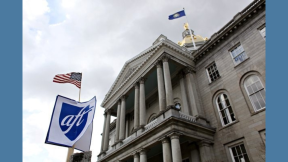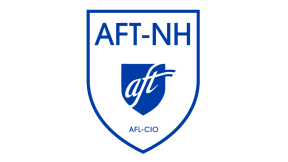Right to Work (for less) Soundly Defeated
SO CALLED RIGHT TO WORK has been beaten back again. Union allies banded together to once again defeat this legislation designed to weaken our collective bargaining rights. The final vote was 212-168, a stunning rebuke of this awful legislation considering the makeup of the NH House. Thank you all for reaching out and making your voices heard in opposing this regressive bill that would have resulted in lower wages and less safe working conditions for Granite Staters.
In addition, this week the House took small steps in better funding education for our public school students by passing two bills (HB 1583 and HB 1686) that would result in an additional $130 million to our local neighborhood public schools. HB 1583 increases base adequacy per pupil funding by $222 to $4,404, establishes grants for districts with low equalized property values, as well as increased grants for districts serving students experiencing poverty. HB 1686 changes differentiated aid for Special Education students from a flat $2,142 per student to a range of $2,642 for Special Education students who receive most of their education in the regular education classroom up to $7,927 for students who need a large number of specialized services, programming, and equipment. These bills will head to the finance committee and then will go to the full House again. We know that $130 million is not enough to fully meet students’ needs and that this same week the superior court upheld their ruling that the state must do much more to adequately fund our schools and support the over 160,000 Granite State students that use them. We consider this a good faith short term effort but continue to urge our legislators to work on a permanent solution and fulfill their constitutional obligation to fund our schools.
MORE






